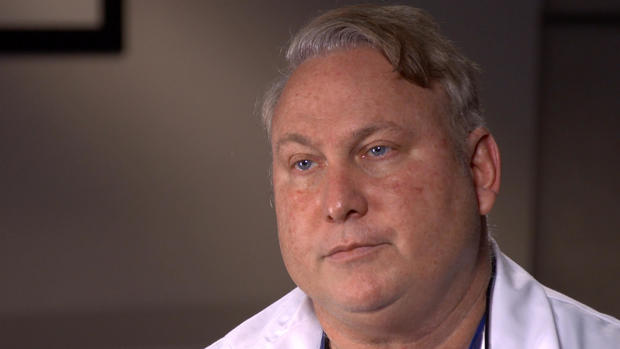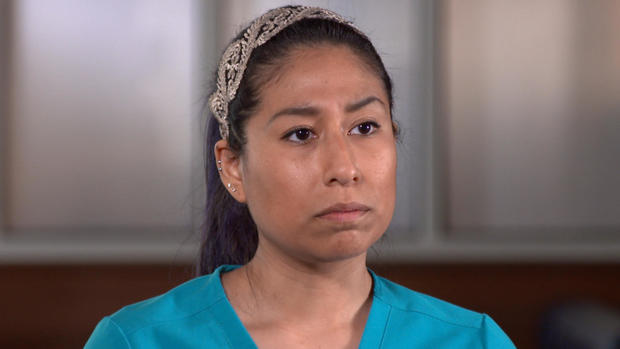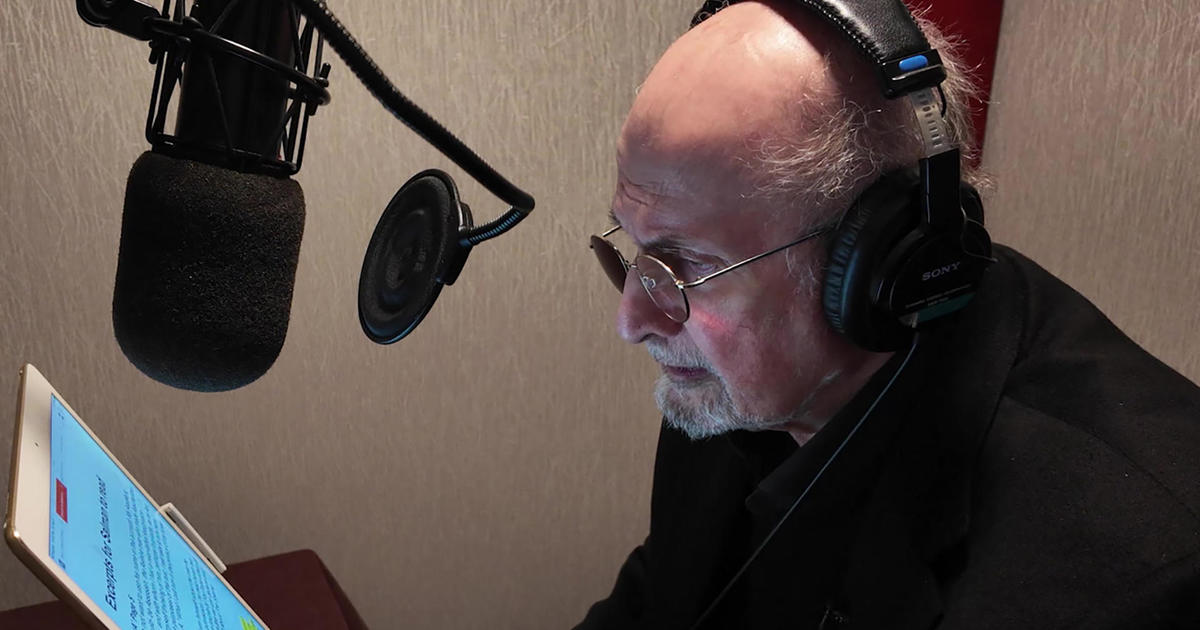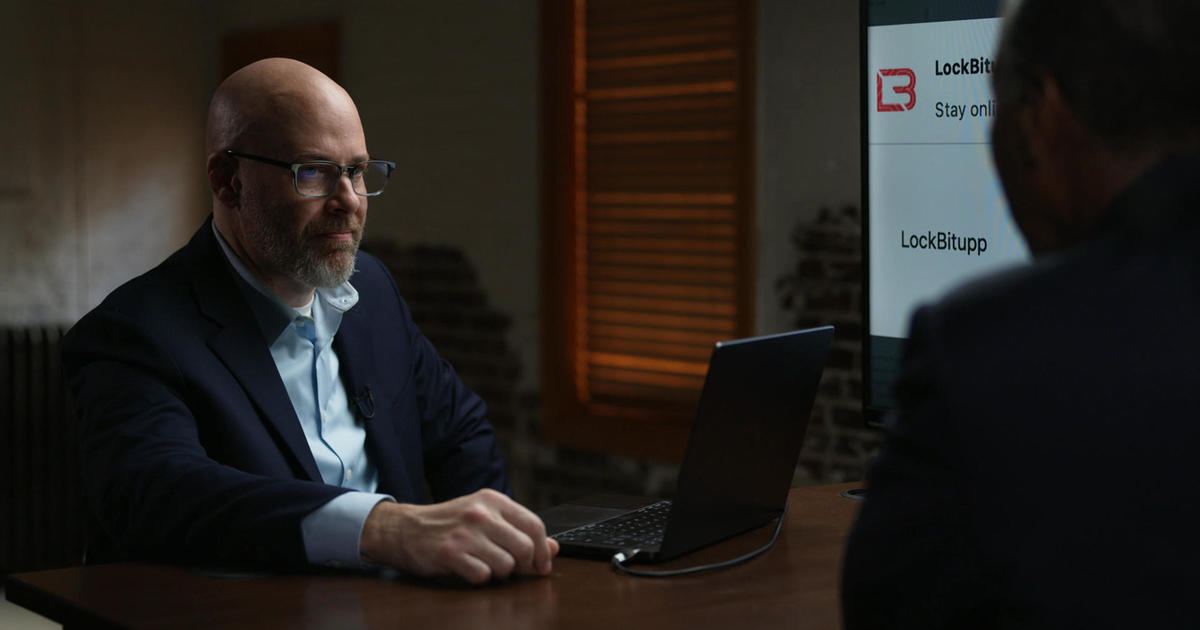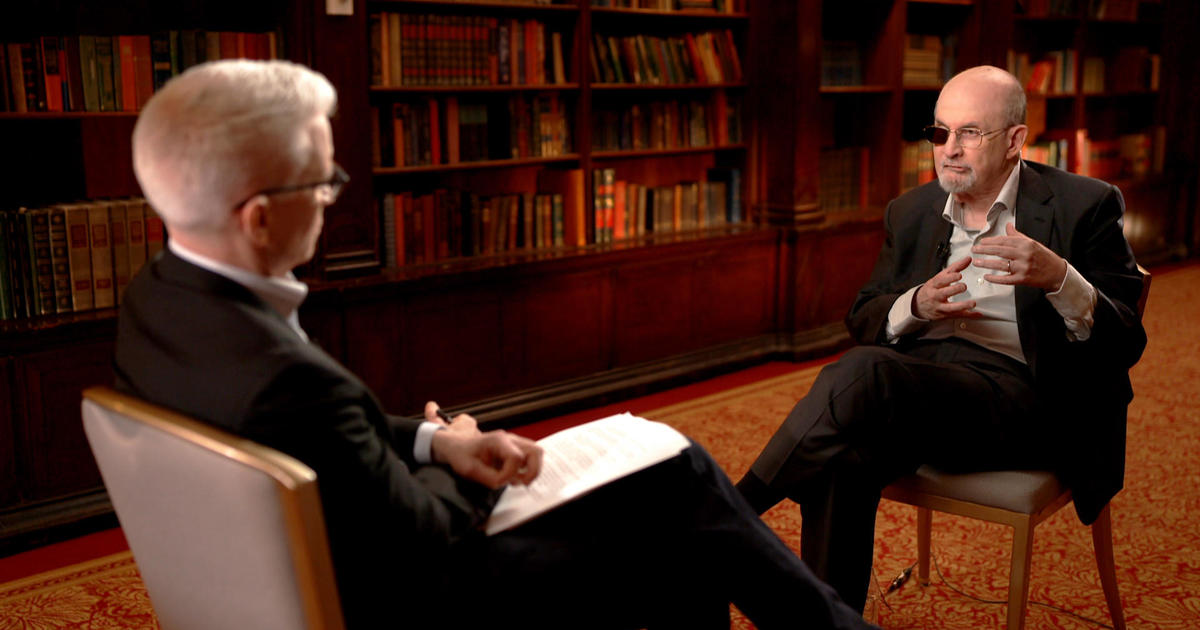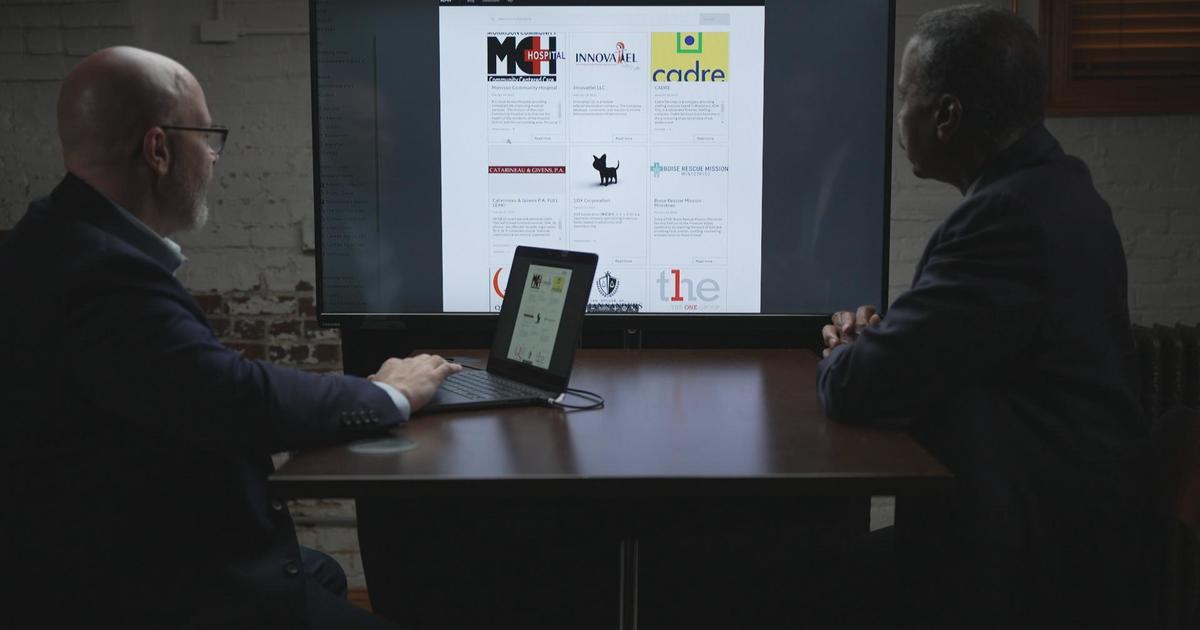Sick doctors, nurses and not enough equipment: NYC health care workers on the fight against the coronavirus
The United States has the tragic distinction of having the highest daily death toll from COVID-19 anywhere on earth. Last week saw nearly 2,000 Americans die at home or in hospitals each day. Thousands of medical workers are falling ill, pulled from the frontlines just when we need them most. So far, more than 50 have died nationwide. For doctors and nurses, a steady supply of personal protective equipment, PPE, can be a lifesaver. But there are massive shortages in those supplies. How did the wealthiest, most medically-advanced nation on earth wind up so utterly unprepared to confront this pandemic? We spoke with the combative White House official in charge of procuring PPE and doctors and nurses risking their lives without the same protective gear many of their counterparts around the world have.
Dr. Sheldon Teperman: Every hospital in New York City is teeming with this virus. Right? In my place, there are hundreds and hundreds of patients. Many, many dozens of intubated, sick COVID patients. In the average place in New York City, whether it's NYU, Cornell, Presbyterian, Northwell, Stony Brook, there are hundreds of intubated COVID patients. And a lot of people are dying.
Dr. Sheldon Teperman is chief trauma surgeon at Jacobi Medical Center in the Bronx. The borough has one of the highest COVID-19 death rates on earth. He runs four intensive care units full of critically-ill patients. His days, he told us, seem endless.
It's the same in hospitals all over New York City. Cross town at Brooklyn Hospital Center, overworked doctors and nurses with limited protective gear, some wearing trash bags bound with tape, race from emergency to emergency. At Wyckoff Hospital in Brooklyn, body bags line the hallway. One doctor called conditions there "catastrophic." After another 16-hour day, Jacobi Medical Center's Dr. Teperman came to us exhausted. We maintained social distance, each in a different New York City location.
Dr. Sheldon Teperman: So COVID comes in waves. It comes in waves. So, it could be manageable in the emergency room at a given moment. And then, we're hit with a terrible wave.
Bill Whitaker: When that wave washes in, what is it like in the ER?
Dr. Sheldon Teperman: So emergency medicine physicians and nurses. They've gotta stare into the faces of these very scared citizens in New York. And, at a certain point, when they can no longer breathe for themselves, they have to have a tube put down their throat, and they have to be put on the ventilator.
Bill Whitaker: You told us it was like hell on Earth.
Dr. Sheldon Teperman: Yeah. So, I'm, you know, I'm calibrating what I'm saying to here. Right? We-- People need to stay home. New York City is on fire. Our neighbors are dying. Health care workers are being affected. Right now, you know, my boss, my second in command, my nephew, my senior nurse, second senior nurse.
Bill Whitaker: The people you just mentioned have all fallen ill from COVID-19?
Dr. Sheldon Teperman: Yes. Yes. And some of them are quite sick.
Dr. Teperman and his colleagues are repeatedly exposed. He told us he "sees" the virus in hot zones around the hospital.
Dr. Sheldon Teperman: I'm speaking metaphorically that I see the virus. It's also a protective mechanism. There are moments in the hospital, you know, where the virus conceivably is pluming into the air because a procedure is being done that creates an aerosolizing of the virus. I mean that's just a fact. Those are the true N95 moments.
N-95's are the coin of the realm in this crisis, respirator masks that filter 95% of airborne particles. Just as important though are the gloves, gowns, goggles, face shields, surgical masks, all PPE designed to be discarded after every encounter with an infected patient.
Bill Whitaker: Do you have enough masks?
Kelley Cabrera: No.
Bill Whitaker: Do you have enough face shields?
Kelley Cabrera: No.
Bill Whitaker: Gowns?
Kelley Cabrera: No.
Kelley Cabrera is an emergency room nurse at Jacobi…
Kelley Cabrera: We want to help our patients, and we want to do it safely.
Who led a protest to draw attention to the lack of PPE at hospitals nationwide. The problem has gotten so bad there's a hashtag, "Get me PPE," on Twitter with posts like: "I'm a physician at a New York City hospital and this is the PPE I was just handed for my shift" a Yankee souvenir rain poncho.
Kelley Cabrera: Look my neck is exposed, I'm wearing a reused mask. I have another one covering it.
Cabrebra has been filming video diaries, but says she's speaking out reluctantly. We conducted the interview remotely.
Kelley Cabrera: Every healthcare worker infection, every healthcare worker death is preventable.
Bill Whitaker: How do you feel about going into work every day? Are you safe?
Kelley Cabrera: No. Absolutely not. If you do a simple Google search, look at what other countries are wearing in comparison to us. I mean, it makes, I mean, it makes sense that we're getting infected. How could we expect not to?
More than 900 doctors and nurses in Boston have tested positive for COVID-19, yet as of last week in Hong Kong, where masks are not reused, there were no reported infections of hospital workers.
Kelley Cabrera: Prior to this, prior to coronavirus, we would have been reprimanded for doing the things that we're doing now. We're walking around with medical waste from room to room, from patient to patient.
Bill Whitaker: Did I hear you say, you're walking around from room to room wearing medical waste?
Kelley Cabrera: That's correct. That's what it is. We're wearing stuff that is, it's dirty. The fact that we're given a mask to wear for five days, it's, it's wrong.
One of her fellow nurses, Freda Ocran, has died. Another was put on life support. And a young ER doctor was admitted to the ICU.
Bill Whitaker: And yet you go back to that hospital every single day.
Kelley Cabrera: If we don't go, who's gonna take care of these patients? I mean, I think we're getting to a spot where, where people are, are really, I mean, it's a very difficult moral question, you know? It's like, do I not show up to work and protect myself? Or do I show up with and do the best that I can with what I have to help other people? A lot of us are speaking out, because we realize that this problem is so much bigger than our individual hospitals.
Cabrera says she and her fellow nurses are skeptical about the shifting centers for disease control guidance on the use of personal protective equipment when treating patients with COVID-19.
Kelley Cabrera: We're looking to the CDC for answers, and initially they had certain recommendations for what we should wear. We watched those recommendations be scaled back, not based on science, not because miraculously coronavirus wasn't as contagious. They scaled those back, because they knew that we didn't have the proper supplies.
Peter Navarro: The biggest lesson here is make this stuff here.
Economist Peter Navarro is special assistant to President Trump for trade and manufacturing, tasked with getting PPE to America's medical workers.
Peter Navarro: We wouldn't be having this problem if we had the domestic production of essential medicines, medical countermeasures, medical supplies like masks and medical equipment like ventilators. If we made it here, we wouldn't be faced with this. That was, that was the original sin.
Navarro spoke to us from Washington, D.C. With the strategic national stockpile now depleted, he was put in charge of the defense production act, to mobilize American industry to meet the demand for medical supplies.
Bill Whitaker: I'm here in New York. And we hear daily the hospitals are running out of masks, they're running out of gowns, they're running out of gloves. My question is: how did we, the United States, the most powerful, the wealthiest country on earth, get blindsided like this?
Peter Navarro: It's the global --globalization of production through multinational corporations, who salute no flag, who love cheap sweatshop labor, and who love the massive subsidies that the Chinese government throws at production to bring it from here to there.
Navarro is an architect of the Trump administration's trade war with China and is one of the biggest proponents of its "America First" policies. Now, in the wake of the outbreak, more than 70 countries across the world are restricting the export of products U.S. doctors and nurses desperately need to treat COVID-19.
Bill Whitaker: We have a nurse that we've been speaking to. The nurse asked what has taken you so long?
Peter Navarro: What is taking…
Bill Whitaker: You're talking about ramping up and the Defense Production Act. And she's on the front lines having to reuse masks and gowns.
Peter Navarro: We're moving in Trump time, which is to say as swiftly as possible. If you look at the trajectory of events we-- we-- we-- we learn about the potential for a pandemic. We're not sure what the scope of it will be. The Trump administration starts rapidly mobilizing. But-- but it-- this-- this is the 500-year flood. And it takes time.
Bill Whitaker: I have seen reports that the intelligence community was notifying the administration back in January that this was happening.
Peter Navarro: This is, like, like, the fake news stuff. It's, like, okay, somebody said…
Bill Whitaker: It's not fake news, sir.
Peter Navarro: It's like, show me the money here. What exactly did they say? Did they say, "There's gonna be a global pandemic that's gonna shut down the entire global economy."
Well, it turns out Navarro himself said almost exactly that. A few days after our interview the news site Axios published this memo Navarro wrote in late January, in which he warned the White House National Security Council the China-born virus could cause a global pandemic, take a "half-million American souls" and cost the economy "$5.7 trillion." He told us he does not contest its authenticity.
Peter Navarro: No apologies here from this administration. We are, we are doing better and more than any other president could've done.
Bill Whitaker: Sir, this is the best you can?
Peter Navarro: You say, "This is the best you can?" It's, like, oh, somebody coulda done better. Really? Who coulda done better on this? I mean, really, think about this.
Kelley Cabrera: And I know it's a pandemic, and we, it's just really hard for us to accept the fact that this is the best that we can do. I wouldn't wish this upon anybody. We're running out of supplies that, it's not just the PPE and ventilators. We're running out of IV pumps. We're running out of stuff that we never ran out of before. And it is unacceptable that in the United States of America, the richest country in the world, we are struggling like this.
This week was one of the worst in New York's history. COVID-19 patients filled hospitals and morgues in numbers that dwarfed 9/11. The Trump administration says it's moving heaven and earth to get medical supplies here. Heaven can wait, New York can't.
Bill Whitaker: The president did say that the problem with some people is just, no matter how much you give them, they say it's never enough.
Dr. Sheldon Teperman: Well, (LAUGH) I would say come visit. We're taking care of, just in our system, America's largest public hospital system, thousands and thousands and thousands of COVID-positive patients. So, yeah, there's never gonna be enough. Keep it comin'. Because you don't wanna go into those rooms, do you? We're gonna go into those rooms. We just need to be properly protected.
Produced by Sam Hornblower and Graham Messick. Associate producer, Jack Weingart. Broadcast associates, Mabel Kabani and Emilio Almonte. Edited by Craig Crawford.
